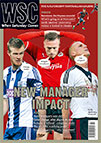 England face Costa Rica at the 2014 World Cup but they won’t be the first of the home nations to do so and would be wise to heed their neighbour’s traumatic experience, writes Archie MacGregor
England face Costa Rica at the 2014 World Cup but they won’t be the first of the home nations to do so and would be wise to heed their neighbour’s traumatic experience, writes Archie MacGregor
Costa Rica were not supposed to be an accident waiting to happen for Scotland at the 1990 World Cup finals. After the hubris and humiliation of Argentina 78 followers of the national team had a dozen years of intensive therapy about where we stood in the global order. Never again would we take anything for granted at a major tournament.